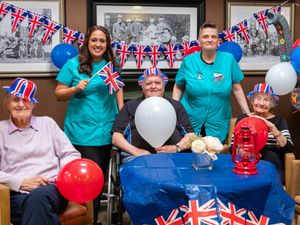Hospitals 'accepting the unacceptable' with patients dying on corridors - West Midlands nurses share heartbreaking reality of A&E crisis
Nurses across the region have revealed heartbreaking details of A&E departments 'accepting the unacceptable' amid the ongoing crisis in hospital care.

The harrowing details are described in a series of first-hand testimonies from nurses on the frontline of the NHS crisis.
They have been gathered by the Royal College of Nursing, with Professor Nicola Ranger, General Secretary and Chief Executive, describing the findings as 'heartbreaking'.
In an impassioned plea for "investment in our workforce" she warns that without it the future of the "already broken" NHS will "becomes truly bleak".
The accounts of nurses specifically employed across the West Midlands make for sombre reading, frequently describing care as 'undignified', bemoaning a 'lack of privacy', and fundamentally unsafe conditions for treating patients.
They tell of patients left soaked in urine and encouraging family members to complain.
While the testimonies are anonymised - and the names of the hospitals are not included, they detail a pattern of "distressing and upsetting care" across the West Midlands.
Shropshire's own problems with corridor care at Shrewsbury & Telford NHS Hospital Trust were revealed in a TV documentary last year.

At the Royal Shrewsbury Hospital A&E patients had been held in a corridor on trolleys due to a lack of space - with apologetic doctors carrying out examinations using makeshift screens put up in an attempt to maintain privacy.
The RCN's findings include accounts with nurses saying they would "hate" to see their family treated in the same manner, while others describe their impending retirement as a "window of hope" amid "undignified and dangerous" care.
The pressure on Shropshire's A&E departments, at Shrewsbury and Telford, has been in the spotlight again in recent weeks as they recorded the longest average waits for patients in the back of ambulances - across the entire country.
On New Year's eve ambulances waited for an average of four hours and 43 minutes to hand over patients.



